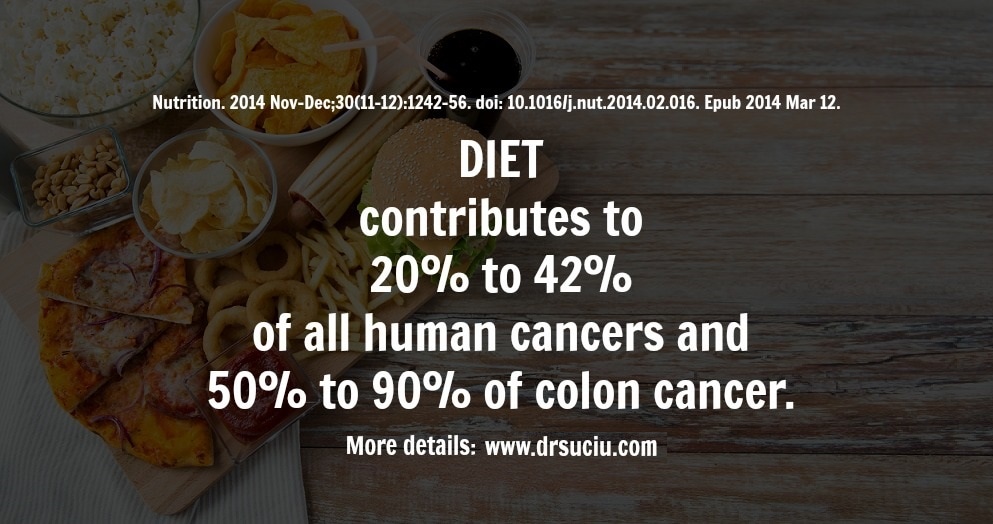|
Diet contributes to 20% to 42% of all human cancers and 50% to 90% of colon cancer. Recent evidence shows that the Western diet has a causative link to colon cancer; however, mechanisms of action are not fully elucidated. Many reviews present an extensive analysis of the key findings from studies on the effects of antioxidants such as tea polyphenols, curcumin, genistein, resveratrol, lycopene, omega 3 fatty acids, grape seed extract, vitamin D and C, etc. against cancers. These chemopreventive agents also have very recently been found to reverse chemoresistance and radioresistance in patients undergoing cancer treatment. Thus, these chemopreventive agents have potential to be used as adjuncts to current cancer therapies. ABSTRACT
Colon cancer strikes more than 1 million people annually and is responsible for more than 500,000 cancer deaths worldwide. Recent evidence suggests that the majority of malignancies, including colon cancer are driven by cancer stem cells (CSCs) that are resistant to current chemotherapeutic approaches leading to cancer relapse. Wnt signaling plays a critical role in colon stem cell renewal and carcinogenesis. Leucine-rich repeat-containing G protein-coupled receptor 5 (LGR5), a Wnt target gene, and aldehyde dehydrogenase 1 B1 (ALDH1B1) are good markers for normal and malignant human colon stem cells. Diet contributes to 20% to 42% of all human cancers and 50% to 90% of colon cancer. Recent evidence shows that the Western diet has a causative link to colon cancer; however, mechanisms of action are not fully elucidated. Western diet-induced obesity elevates systemic insulin-like growth factor-1 and insulin levels, which could lead to elevated proliferation and suppressed apoptosis of CSCs through PI3K/AKT/Wnt pathway. Although conventional chemotherapy targets the PI3K/AKT pathways and can significantly reduce tumor size, it fails to eliminate CSCs and has serious side effects. Dietary bioactive compounds such as grape seed extract, curcumin, lycopene, and resveratrol have promising chemopreventive effects, without serious side effects on various types of cancers due to their direct and indirect actions on CSC self-renewal pathways such as the Wnt pathway. Understanding the role of CSCs in diet-induced colon cancer will aid in development of evidence-based dietary chemopreventive strategies and/or therapeutic agents targeting CSCs. REFERENCE: Nutrition. 2014 Nov-Dec;30(11-12):1242-56. doi: 10.1016/j.nut.2014.02.016. Epub 2014 Mar 12. Colon carcinogenesis: influence of Western diet-induced obesity and targeting stem cells using dietary bioactive compounds. Kasdagly M1, Radhakrishnan S2, Reddivari L3, Veeramachaneni DN4, Vanamala J5. Les commentaires sont fermés.
|
IMPORTANT NOTICE:
The informations and advices published or made available through drsuciu.com web site are not intended to replace the services of a physician, or any other therapist nor does it constitute a doctor-patient relationship. You should not use the information on this website for diagnosing or treating a medical condition or a health problem We advise you to consult your doctor regarding all matters relating to your health and in particular regarding the existence of symptoms that may require diagnosis or medical care Archives
Août 2017
Category |


 Flux RSS
Flux RSS